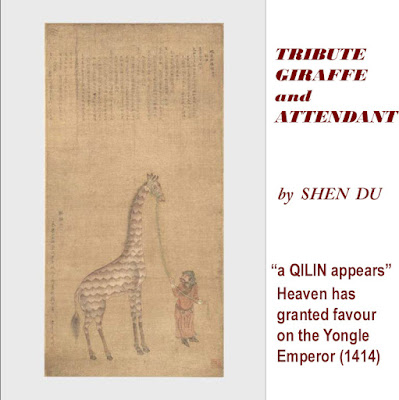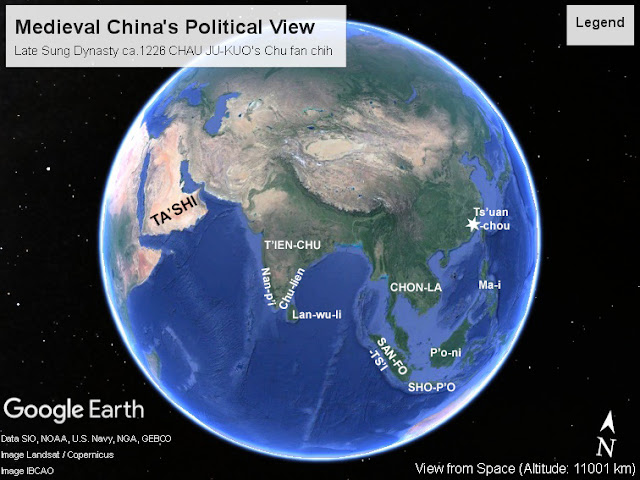MA HUAN

Serving as an official translator, Ma Huan travelled on three of Cheng Ho's voyages ― the fourth (1413-1415), sixth (1421-1423), and seventh (1431-1433). In a 'Notice' or 'Foreword' written in 1416, after his first journey with the Ming fleet, he declared: "I followed the [mission] wherever it went, over vast expanses of huge waves for I do not know how many millions of li ; I saw [these countries] with my own eyes and I walked [through them] in person. So I collected [notes about] the appearance ['ugliness or handsomeness'] of the people in each country, [and] about the variations ['dissimilarity or similarity'] of the local customs, also [about] the differences in the natural products, and about the boundary-limits. I arranged [my notes] in order so as to make a book, which I have entitled The Overall Survey of the Ocean's Shores [ Ying-yai Sheng-lan ]." In fact, it is doubtful that Ma personally visited every one of the tw...



